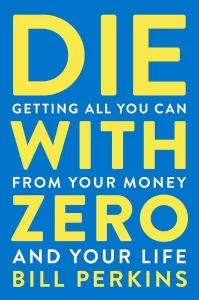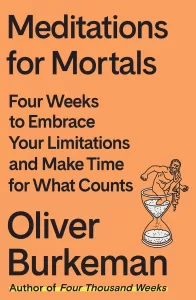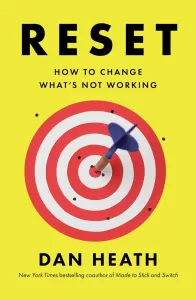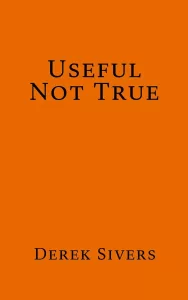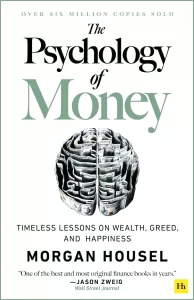Book Review: “Meditations for Mortals”
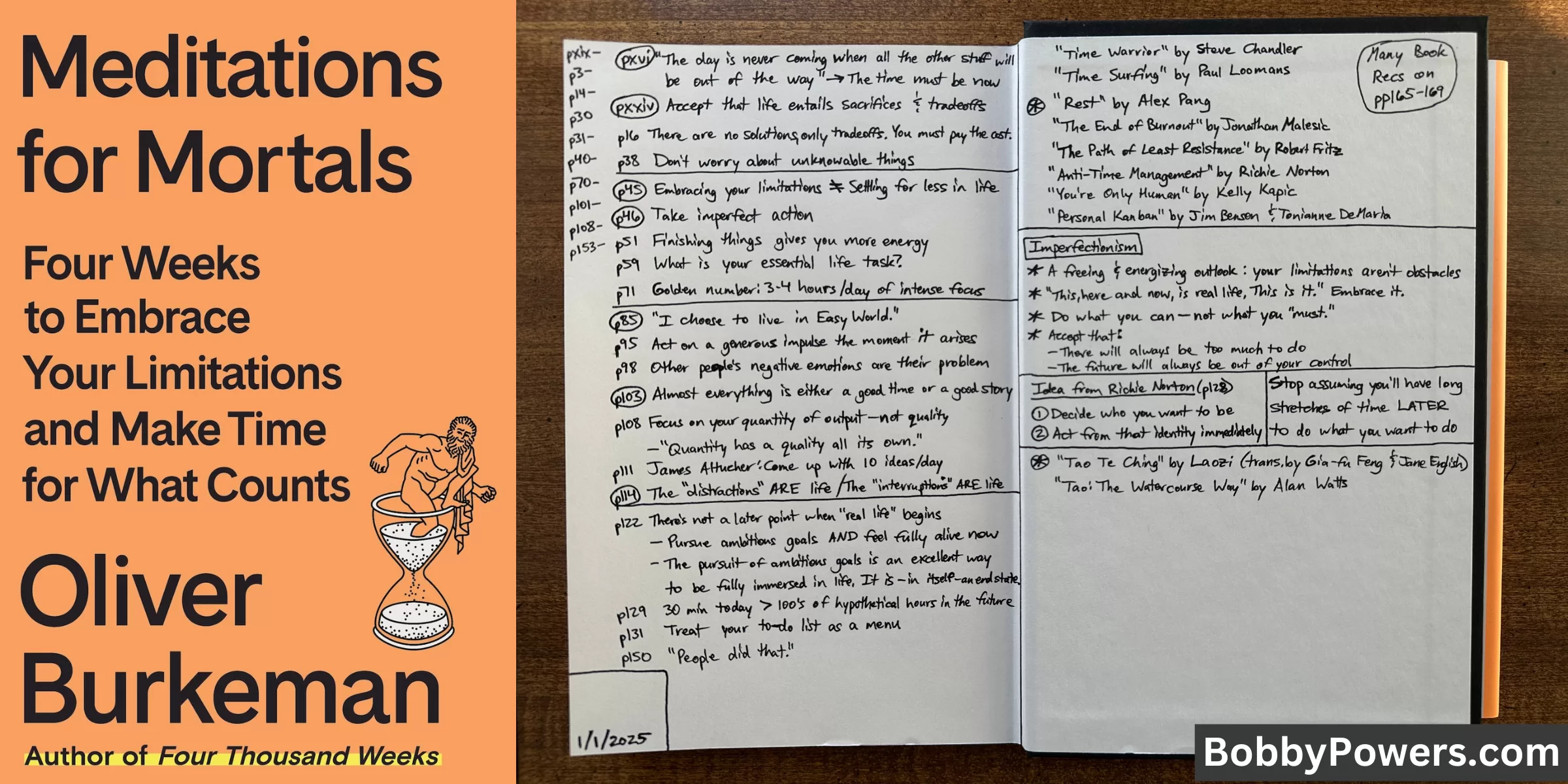
I write in the back cover of every book I read, as shown above.
To learn more about my book notes system, click here.
Book: Meditations for Mortals by Oliver Burkeman
Reviewer: Bobby Powers
My Thoughts: 7 of 10
Burkeman's earlier book Four Thousand Weeks was one of my favorite books in 2022. He's a countercultural thinker and a talented writer. Meditations for Mortals is his follow-on book to Four Thousand Weeks. If you haven't read Burkeman's earlier book, start there. It's better and has a higher chance of impacting your life, thought processes, and routines. But if you've already read that one, Meditations is a good supplement that explains how to embrace your limitations and the freedom of imperfectionism.
What I Learned from the Book
Especially in the Western world, it's easy to become obsessed with productivity. Hustle culture demands that we do more, more, more—hopelessly feeling like we can never do enough. But productivity shouldn't be our goal. Instead, we should strive to live a life of meaning—a life that's effective (doing the right things) rather than efficient (doing things quickly).
Burkeman explains that one of the best ways to live a life of meaning is to embrace your limitations: recognize that you can't do everything. You have to pick your shots. You have to embrace imperfection.
"This is a book about how the world opens up once you realize you're never going to sort your life out. It's about how marvelously productive you become when you give up the grim-faced quest to make yourself more and more productive; and how much easier it gets to do bold and important things once you accept that you'll never get around to more than a handful of them (and that, strictly speaking, you don't absolutely need to do any of them at all)." -Oliver Burkeman
Selected Quotes & Ideas from the Book
The Imperfect Life
- Imperfectionism = "A freeing and energizing outlook based on the conviction that your limitations aren't obstacles to a meaningful existence, which you must spend your days struggling to overcome, en route to some imaginary point when you'll finally get to feel fulfilled"
- "One main tenet of imperfectionism is that the day is never coming when all the other stuff will be 'out of the way,' so you can turn at last to building a life of meaning and accomplishment that hums with vitality. For finite humans, the time for that has to be now."
- "Most successful people are just a walking anxiety disorder, harnessed for productivity." -Andrew Wilkinson (entrepreneur and investor) <- Don't be like that!
- "Confronting your non-negotiable limitations means accepting that life entails tough choices and sacrifices...When you give up the unwinnable struggle to do everything, that's when you can start pouring your finite time and attention into a handful of things that truly count."
- "Embracing your limitations isn't a matter of settling for less in life."
Take Imperfect Action
- "Operate on the assumption that somewhere, in the confusing morass of your work or your life, lurks at least one decision you could make, right now, in order to get unstuck and get moving."
- "You might argue that making a decision is the defining act of the limit-embracing life."
- "There is neither a proportional relationship, nor an inverse one, between a writer's estimation of a work in progress and its actual quality. The feeling that the work is magnificent, and the feeling that it is abominable, are both mosquitoes to be repelled, ignored, or killed, but not indulged." -Annie Dillard
- "One more paradoxical truth about control: often, the way to have the best ideas, and to produce the best work, is to develop an ability to forget entirely about trying to control the quality of your output. And the easiest way to do that is to focus on quantity instead."
- "The signature behavior of the striver-towards-sanity is 'clearing the decks': trying to deal with all the minor tasks tugging at your attention in an effort to arrive at the point when you finally expect to have large stretches of time to focus on what you care about. The trouble with clearing the decks, as we've seen, is that the supply of things to fill the decks is to all intents and purposes limitless. So a commitment to clearing the decks leads inexorably to a life spent unendingly clearing the decks."
- "Even thirty minutes spent Actually Doing the Thing today are more valuable than hundreds of purely hypothetical hours in the future."
Too Much Information
- "By 1999, researchers estimated, the quantity of data generated worldwide came to at least 1.5 billion gigabytes. The 2024 estimate is 147 trillion gigabytes. Much of it isn't in the form of published content, of course, but plenty is—and by comparison, according to one amateur back-of-the-envelope calculation, the entire Library of Alexandria contained around 12 gigabytes."
- By the mid-2000s, "it was already obvious that the internet was going to exponentially exacerbate the problem of there being far too much to read."
- "The challenge isn't to locate a few needles of relevance in a haystack of dross. The challenge, in the words of the technology critic Nicholas Carr, is figuring out how to deal, day in and day out, with 'haystack-sized piles of needles.'"
- One helpful piece of advice: "Treat your to-read pile like a river, not a bucket. That is to say: think of your backlog not as a container that gradually fills up, and that it's your job to empty, but as a stream that flows past you, from which you get to pick a few choice items, here and there, without feeling guilty for letting all the others float by."
- "Most of the long-term benefits of reading arise not from facts you insert into your brain, but from the ways in which reading changes you, by shaping your sensibility, from which good work and good ideas will later flow."
Allow Other People Their Problems
- "Other people's negative emotions are ultimately a problem that belongs to them. And you have to allow other people their problems."
- "It's a fool's errand—and a flagrant denial of your finite power over reality—to make your sense of feeling OK dependent on knowing that everyone around you is feeling OK, too."
- "One of the main reasons we fail to treat other people's emotions in this clear-headed way is that they sail under the flag of 'urgency.' Some tasks are legitimately time-sensitive, of course; but the unpleasant anxiety that attaches itself to tasks we've deemed 'urgent' is often a sign that someone else's priorities are in control."
- "You know, if you can't do something, saying no right away usually makes it much easier for everyone." -A Guardian editor, to Burkeman (early in his career)
Scruffy Hospitality
- "A perfectly kept house is the sign of a misspent life." -Mary Randolph Carter
- "Jack King, an Anglican priest from Tennessee, coined the phrase 'scruffy hospitality' in 2014. He and his wife enjoyed hosting friends for dinner, and they had a standard checklist they'd run through in the days and hours before guests were due to arrive...Powering through their list made their home more inviting to visitors. But it also subtly dissuaded them from inviting more visitors, because it was so much work."
- "And so King and his wife made an admirably imperfectionist decision: they'd start inviting friends to dine in their home as it was, and on whatever happened to be in the kitchen cupboards."
- "Scruffy hospitality means you're not waiting for everything in your house to be in order before you host and serve friends in your home...Scruffy hospitality means you're more interested in quality conversation than in the impression your home or lawn makes." -Jack King
- "Being willing to let others see your life as it really is can be a positive act of generosity towards them, too."
Assorted Wisdom
- "What is true is already so. Owning up to it doesn't make it worse. Not being open about it doesn't make it go away. And because it's true, it is what is there to be interacted with. Anything untrue isn't there to be lived. People can stand what is true, for they are already enduring it." -Eugene Gendlin
- "You are free to do whatever you like. You need only face the consequences." -Sheldon Kopp
- "The art of being wise is the art of knowing what to overlook." -William James
- "Never let the future disturb you." -Marcus Aurelius

